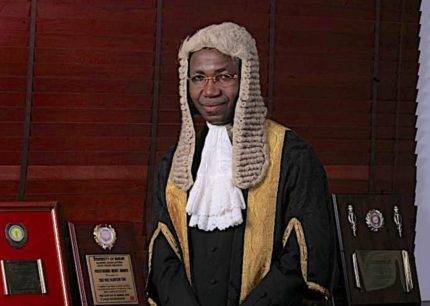President Tinubu’s has taken a decisive step in addressing the prolonged legal disputes surrounding the $1.3bn deepwater OML 245 oil block situated in the southern Niger Delta. In an official directive, the President has instructed key figures, including the Attorney-General of the Federation, Lateef Fagbemi (SAN), and the Minister of State for Petroleum Resources, Heineken Lokpobiri, to expedite the resolution of all court cases related to OML 245. This move signals a commitment to bringing a swift conclusion to the nearly three-decade-long crisis and litigations surrounding this crucial oil block.
The involvement of significant government agencies, such as the Economic and Financial Crimes Commission (EFCC), Nigerian Upstream Petroleum Regulatory Commission, and Nigerian National Petroleum Company Limited, underscores the comprehensive approach being taken to address the complex legal entanglements. President Tinubu’s directive suggests a concerted effort to create a conducive environment for negotiations, fostering the possibility of a resolution within the next month.
President Tinubu’s Underway to End OML 245 Crisis
Minister Heineken Lokpobiri, speaking in Abuja on Wednesday, revealed that negotiations are currently underway to bring an end to the protracted crisis and litigations surrounding the OML 245 oil block. Parties involved in the deal are actively engaged in discussions, and there is optimism that a resolution could be reached within the next month. This development comes after President Tinubu’s directive to expedite the clearance of court cases related to OML 245, showcasing a commitment to resolving the issues that have plagued the oil block for over 28 years.
The significance of this negotiation process cannot be overstated, as OML 245 holds immense economic importance for the nation. The potential resolution of the crisis within the stipulated timeframe would not only bring an end to a long-standing legal battle but also pave the way for more stable and productive exploitation of this valuable deepwater oil block, benefiting both the government and the stakeholders involved.

Nigeria Faces £70 Million Penalty as JP Morgan Wins Lawsuit Against Government
In a surprising turn of events, JP Morgan has secured a legal victory against the Nigerian government, resulting in a staggering penalty of over 70 million pounds. The lawsuit, initiated by JP Morgan, alleged that the government’s actions aimed to tarnish the bank’s image during a complex legal saga. Ministerial sources have confirmed that the court’s decision has now made the substantial penalty binding on Nigeria, leaving citizens to grapple with the financial repercussions.
This substantial penalty raises concerns about its impact on the nation’s economy and the burden it places on taxpayers. The minister in charge explained the gravity of the situation, emphasizing that this hefty fine would ultimately be borne by the citizens or their descendants as it constitutes a judgment debt. The unexpected legal blow has sparked widespread debate on the transparency and appropriateness of the government’s actions, adding fuel to the ongoing discourse surrounding Nigeria’s legal and financial landscape.
Pursuing Elusive Convictions – Nigeria’s Struggle in International Courts
The minister shed light on Nigeria’s ongoing legal battles on multiple fronts, particularly in Switzerland and other international locations. Despite concerted efforts, the country has faced challenges in presenting compelling evidence to secure convictions in various cases. This revelation has prompted a reevaluation of the government’s legal strategy, with a recognition of the need to explore alternative approaches to resolve complex disputes.

As the government grapples with the difficulties of obtaining convictions in international courts, the minister emphasized the importance of addressing longstanding issues hindering economic growth. Highlighting a specific case involving Eni and Shell, the government is now seeking dialogue to find amicable solutions. The acknowledgment of mutual legal actions between the parties underscores the complexity of the disputes and the necessity for a collaborative approach to break the impasse.
Unlocking Economic Potential – President Tinubu’s Bid to Resolve Longstanding Issues
Amidst legal challenges, the Nigerian government led by President Tinubu’s is actively pursuing negotiations with major stakeholders, including Eni and Shell, to resolve protracted disputes. The minister emphasized that certain oil blocks, idle for 28 years, possess substantial economic potential that could significantly contribute to the nation’s prosperity. Recognizing the futility of prolonged legal battles, the government aims to foster a cooperative environment by engaging in discussions to address the root causes of disputes.
This proactive stance by the government signifies a shift toward prioritizing economic development over prolonged legal wrangling. The President Tinubu’s call for dialogue and resolution is indicative of a broader strategy to unlock dormant economic assets and mitigate financial burdens resulting from legal penalties. As stakeholders engage in negotiations, the nation watches closely, hopeful for a constructive resolution that will pave the way for economic growth and stability.
Table of Contents
Discover more from OGM News NG
Subscribe to get the latest posts sent to your email.














